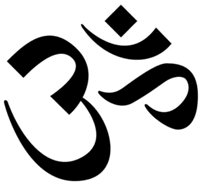Introduction
Hinduism is one of the oldest and largest religious systems in the world. It has over 900 million followers worldwide and comprises 13% of the world’s population. The religion is stated to be around 3000 years old. About 80% of the people of India follow Hinduism and its believers are called Hindus. Hinduism, many believe, is not a religion; it is a way of life, a set of beliefs and traditions evolved over a period of time in the Indian subcontinent. The term Hinduism was coined by foreigners to distinguish the religious tradition of the Indian subcontinent from Islam and Christianity.
Hinduism origin and development
Hinduism is different from other religions in the world as it does not have a single doctrine or a single founder like Christianity or Islam. It is a God-centred religion while most of the other religions are prophet-centered. Hinduism is the principal religion of India, which developed gradually over a period of four thousand years. It consists of many different religious groups that have developed in India since 1500 BC.
Hinduism originated in India more than 3000 years ago, in the Indus Valley region, near River Indus which is now in Pakistan. It is generally accepted that the religion was brought to the Indian subcontinent by the Aryan people, who conquered and colonized the northern areas of India in or around the third millennium BC. It is spread over Nepal, and among the Tamils in Srilanka, and recently in United States, United Kingdom, and many other countries in the world. The 2001 census recorded that there are 559,000 Hindus in Britain which constitutes around 1% of the population.
Hinduism: the basic concept
Contrary to popular understanding, Hinduism believes in one God, known as ‘Brahman’ who created and us believed to be present in everything. It is a monotheistic religion and believes that the God of Hindus, Christians, Muslims, and all other religions is the same. Hinduism believes that all worship the same God but in different ways. All types of worship are accepted by God if they are done with faith and devotion. The Vedas are the sacred religious texts of Hinduism, which define the concept of truth.
Vedas means knowledge of truth and the Hindu philosophy is based on the teachings of Vedas. It is not the only sacred book of Hinduism. Upanishads, Sutras, and Bhgavad Gita are some of the other holy books of this faith. Every religion is a way to God and no particular way to God is superior to that of others. “All paths are true. Your path for you; My path for me.” This is the basic principle of Hinduism. The symbol ‘Om” is a Hindu sacred sound that is considered the greatest of all mantras. It mystically embodies the spirit of the universe.

Hindus worship in the temple or home shrine. It involves the worship of images or icons and prayers. In Hinduism, worship is primarily an individual act than a communal one. Hindu culture is also famous for the different types of unique festivals ‘Diwali,’ a festival of lights is a popular celebration of Hinduism. Hindu religious rites are classified into three categories: Nitya, Naimittika, and Kamya. Pilgrimage is one of the important ways of worship.
This religion has a variety of traditions for several occasions in human life. ‘Jatakarma’ is a baby rite performed to welcome the newborn child into the family, by giving some honey in the child’s mouth and whispering the name of God in the child’s ear as a reflection on meditation. The leader of the Hindu religion is known as Guru (teacher). In Hinduism, Guru is a man of great respect as it is believed that without the help of a Guru one cannot reach God.
Conclusion
The essential value of Indian culture is derived from the spirituality of Hinduism and it includes truth, love, non-violence, and universal brotherhood. Science of spirituality, meditation, and moderation are the strongest elements in the Hindu heritage. The Indian culture is enriched by the Hindu philosophy of life as it propounds universal principles of world citizenship and humanism.
The Hindu view of humanism stresses social ethics, virtues, and graces in the human being to cultivate character and enhances individual freedom and responsibilities. Hinduism has stood the test of time more effectively than any other religion of the world because of the universal appeal of its principles. It believes in one God and goes one step ahead of other religions by accepting every religion as it believes everything in the universe is a manifestation of God.